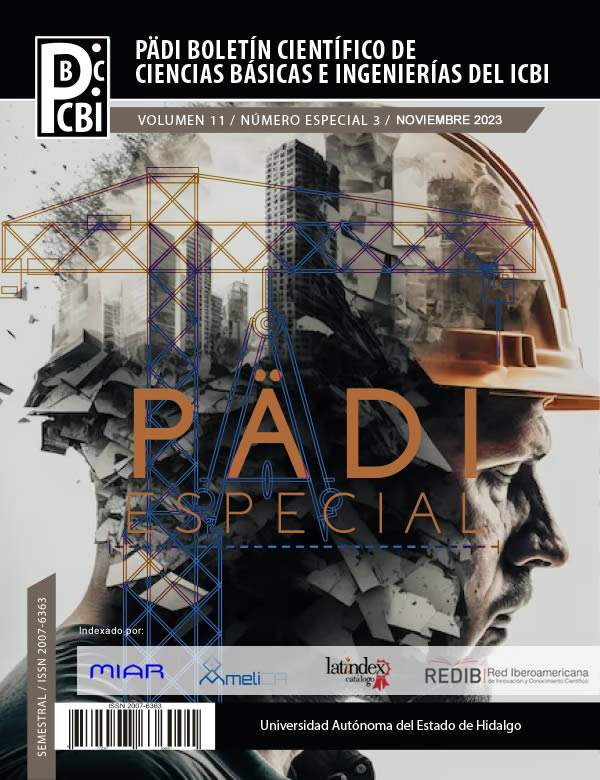Philosophy of Sciences in Engineering: A Fundamental Dissertation for Human and Organizational Development
Abstract
In the 21st century, marked by technological advancements such as artificial intelligence, quantum computing, 5G telecommunications, and Industry 6.0, the question arises about the relationship between philosophy and industry. Despite seeming unnecessary, it is argued that the philosophy of sciences in engineering plays a significant role in the synthesis of both disciplines. While still in its initial stages, this doctrine seeks to explore how philosophy influences the understanding of the universe, society, and culture. It is noted that philosophy is the birthplace of Western modern thought, where diverse thinkers have analyzed natural phenomena and human matters. Organizations and societal sectors, including businesses, reflect philosophical values and principles in their structure. The article raises questions about the level of awareness individuals have regarding this influence and whether engineering professionals are cognizant of its application. The article aims to establish a precedent in this discussion.
Downloads
References
Anicama, K., Jiménez, F., Hugo, M. P., Paz, R., & Purizaca, G. (2014) El existencialismo de Sartre. https://repositorioacademico.upc.edu.pe/handle/10757/344109 Universidad Peruana de Ciencias Aplicadas.
Balaguera, A. L. S., Flores, L. A. P., & Alfonso, D. F. G. (2023). Fundamentos de investigación en ingeniería civil. Ecoe Ediciones.
De Freitas, J. H. (2012). El cinismo: Un elogio a la desvergüenza. Bajo palabra. Revista de filosofía, 2(7), 301-311.
Echeverría, B. (2003). Federico Álvarez y el elogio del eclecticismo. Theoría. Revista del Colegio de Filosofía. Núm. 14-15 junio de 2003. Universidad Nacional Autónoma de México. Facultad de Filosofía y Letras, México 2003.
Estrada, S. J., & Zuccarello, R. Holismo y complejidad en las organizaciones. RE VIS TA ETHOS VE NE ZO LA NA Vol. 6 No. 1, Enero-Junio 2014, 11 - 22
Floridi, L. (2017). Una defensa del construccionismo: la filosofía como ingeniería conceptual (A defence of constructionism: philosophy as conceptual engineering). Pensamiento, 73(276).
García, G.C. (2003), El sabio epicureo y el sabio estoico. Daimon, Revista Internacional de filosofía. Núm. 30. Pp. 23 – 31.
Guzmán-Valdivia, I. (1994). Humanismo trascendental y desarrollo. Limusa editores. México.
Lafarga, J. (2012). La verdad científica (epistemología del desarrollo humano). PSICOLOGÍA LATINOAMERICANA: EXPERIENCIAs, DESAFÍOs Y, 57.
Real Academia Española. https://dle.rae.es/ingenier%C3%ADa Consultado el 10 de julio de 2023
Organización de las Naciones Unidas para la Educación, la Ciencia y la Cultura (2023). https://www.unesco.org/en/basic-sciences-engineering/stem Consultado el 10 de julio de 2023
Pachacama Paredes, R. F., & Quishpe Gaibor, J. S. (2019). La deontología en la calidad de vida profesional de la ingeniería eléctrica. Caribeña de Ciencias Sociales, (mayo).
Bilbao, G., Fuentes, J., & Guibert, J. M. (2006). Ética para ingenieros (p. 198). Sevilla: Desclée De Brouwer.
Arnau Amo, J., & Songel González, J. M. (2010). La Estética en la Ingeniería: ¿materia pertinente o impertinente?. Revista de Obras Públicas.
Bunge, M. A. (1959). Causality the place of the causal principle in modern science.
Husserl, E. (2006). Investigaciones lógicas (tomo. 1)(M. García Morente y J. Gaos, trads.). Madrid: Alianza.
Copyright (c) 2023 Antonio Oswaldo Ortega-Reyes

This work is licensed under a Creative Commons Attribution-NonCommercial-NoDerivatives 4.0 International License.













